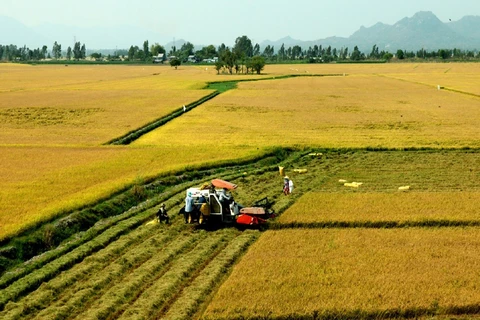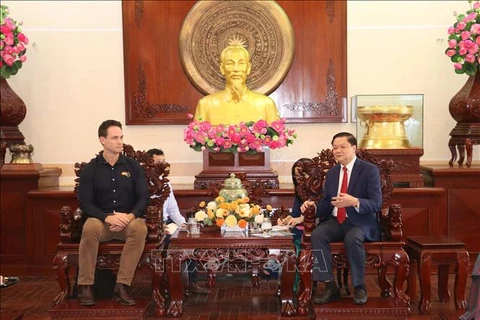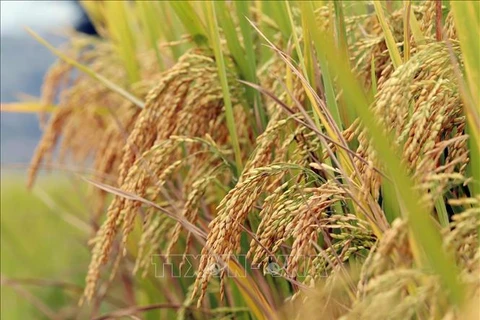
Can Tho (VNA) – A workshop on developing the circular economy in rice production and processing was held in Can Tho city on June 7, drawing the participation of policymakers, experts, and representatives from international organisations and the Departments of Agriculture and Rural Development of 13 Mekong Delta localities, and businesses in this industry.
The event was jointly organised by the Ministry of Agriculture and Rural Development (MARD), the Vietnam Rice Industry Association (VIETRISA) and the International Rice Research Institute (IRRI).
According to Le Thanh Tung, Deputy Director of the MARD’s Department of Crop Production, each year, rice production in the Mekong Delta – Vietnam’s largest rice granary - releases about 24 million tonnes of straw into the environment. However, only 30%, or 7.4 million tonnes, is collected, while the remainder is burned or buried in fields, causing environmental pollution, increasing methane emissions and other greenhouse gases.
To solve this problem, the circular economy is an approach to minimising negative impacts on agricultural ecosystems and improving economic efficiency, Tung said, adding that taking advantage of by-products and waste products from rice production is important to improving the value chain of the region's rice industry.
Rice by-products can become raw materials for the next steps, such as making organic fertiliser and fodder, or for growing mushroom, creating an ecosystem of high-quality products, he stressed.
Experts said that with an abundant source of by-products from the rice industry, Vietnam has a great opportunity to develop an agricultural circular economy by increasing the added value of rice by-products, and creating clean and sustainable energy.
However, it is important to have close coordination between stakeholders, from policymakers, scientists, businesses to farmers to successfully build circular economic models from rice production and processing, they noted.
IRRI Director General Yvonne Pinto stressed the importance of issuing policies that benefit farmers as they have an important role in developing circular agriculture.
MARD Deputy Minister Tran Thanh Nam asked VIETRISA to call on businesses that produce seeds, fertilisers and agricultural supplies, and rice buyers to join in building a standard circular economy model within the “1 million hectares of high-quality rice” project in the region./.






















